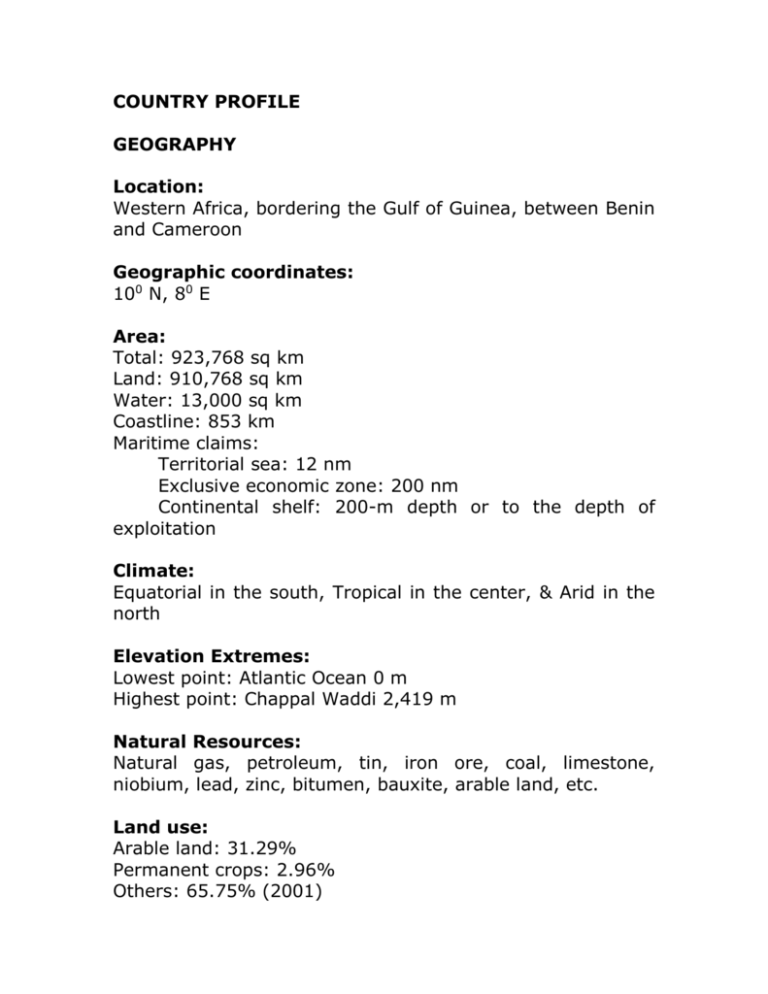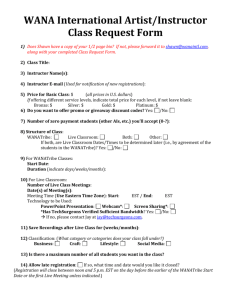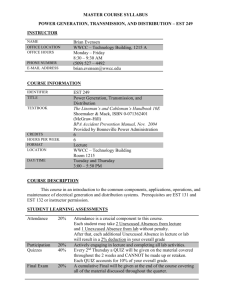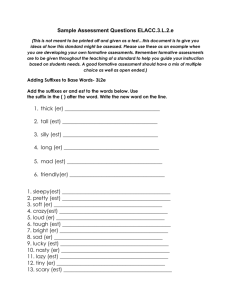COUNTRY PROFILE
advertisement

COUNTRY PROFILE GEOGRAPHY Location: Western Africa, bordering the Gulf of Guinea, between Benin and Cameroon Geographic coordinates: 100 N, 80 E Area: Total: 923,768 sq km Land: 910,768 sq km Water: 13,000 sq km Coastline: 853 km Maritime claims: Territorial sea: 12 nm Exclusive economic zone: 200 nm Continental shelf: 200-m depth or to the depth of exploitation Climate: Equatorial in the south, Tropical in the center, & Arid in the north Elevation Extremes: Lowest point: Atlantic Ocean 0 m Highest point: Chappal Waddi 2,419 m Natural Resources: Natural gas, petroleum, tin, iron ore, coal, limestone, niobium, lead, zinc, bitumen, bauxite, arable land, etc. Land use: Arable land: 31.29% Permanent crops: 2.96% Others: 65.75% (2001) Irrigated land: 2,330 sq km Natural Hazards: Periodic droughts; flooding Environment - current issues: Soil Degradation; rapid deforestation; urban air and water pollution; desertification; oil pollution - water, air, and soil; has suffered serious damage from oil spills; loss of arable land; rapid urbanization PEOPLE Population: 128,771,988 (July 2005 est.) Age Structure: 0-14 years: 42.3% (male 27,466,766/female 27,045,092) 15-64 years: 54.6% (male 35,770,593/female 34,559,414) 65 years and over: 3.1% (male 1,874,157/female 2,055,966) (2005 est.) Median age: Total: 18.63 years Male: 18.71 years Female: 18.55 years (2005 est.) Population Growth Rate: 2.37% (2005 est.) Birth Rate: 40.65 births/1,000 population (2005 est.) Death Rate: 17.18 deaths/1,000 population (2005 est.) Net migration Rate: 0.27 migrant(s)/1,000 population (2005 est.) Infant Mortality Rate: Total: 98.8 deaths/1,000 live births Male: 105.69 deaths/1,000 live births Female: 91.7 deaths/1,000 live births (2005 est.) Life Expectancy at Birth: Total population: 46.74 years Male: 46.21 years Female: 47.29 years (2005 est.) Total Fertility Rate: 5.53 children born/woman (2005 est.) HIV/AIDS - adult prevalence rate: 5.4% (2003 est.) HIV/AIDS - people living with HIV/AIDS: 3.6 million (2003 est.) HIV/AIDS - deaths: 310,000 (2003 est.) Major Infectious Diseases: Degree of risk: very high Food or waterborne diseases: bacterial and protozoal diarrhea, hepatitis A, and typhoid fever Vectorborne disease: malaria Respiratory disease: meningococcal meningitis Aerosolized dust or soil contact disease: one of the most highly endemic areas for Lassa fever (2004) Ethnic Groups: Nigeria, Africa's most populous country, is composed of more than 250 ethnic groups; the following are the most populous and politically influential: Hausa and Fulani, Yoruba Igbo (Ibo), Ijaw, Kanuri, Ibibio, Tiv. Religions: Muslim, Christian, indigenous beliefs Languages: English (official), Hausa, Yoruba, Igbo (Ibo), Fulani Literacy: Definition: age 15 and over can read and write Total population: 68% Male: 75.7% Female: 60.6% (2003 est.) GOVERNMENT Country name: Conventional long form: Federal Republic of Nigeria Conventional short form: Nigeria Government Type: Federal Republic Capital: Abuja Administrative Divisions: 36 states and 1 territory; North West Zone: Jigawa, Kano, Katsina, Kebbi, Sokoto, Zamfara North East Zone: Adamawa, Bauchi, Borno, Gombe,Taraba, Yobe, North Central Zone: Benue, Kaduna, Kogi, Kwara, Nassarawa, Niger, Plateau South East Zone: Abia, Anambra, Ebonyi, Enugu, Imo, South West Zone: Ekiti, Lagos, Ogun, Ondo, Osun, Oyo, South South Zone: Akwa Ibom, Bayelsa, Cross River, Delta, Edo, Rivers, Territory: Federal Capital Territory Independence: 1 October 1960 National Holiday: Independence Day (National Day), 1 October (1960) Constitution: Federal Constitution of May 1999 Legal System: Based on English common law, Islamic Shariah law (in 12 northern states), and traditional law Suffrage: 18 years of age; universal Executive Branch Head of Government: President Olusegun OBASANJO (since 29 May 1999) Cabinet: Federal Executive Council Elections: President is elected by popular vote for no more than two four-year terms; election last held 19 April 2003 (next to be held in 2007) Legislative Branch: Bicameral National Assembly consists of Senate (107 seats, members elected by popular vote to serve four-year terms) and House of Representatives (346 seats, members elected by popular vote to serve four-year terms) Judicial Branch: Supreme Court (judges appointed by the President); Federal Court of Appeal (judges are appointed by the Federal Government on the advice of the Judicial Advisory Committee) Political Parties: Alliance for Democracy (AD); All Nigeria Peoples' Party (ANPP); All Progressives Grand Alliance (APGA); National Democratic Party (NDP); Peoples Democratic Party (PDP); Peoples Redemption Party (PRP); Peoples Salvation Party (PSP); United Nigeria Peoples Party (UNPP), JUSTICE Party (JP), Action Alliance Party (AAP) International Organisation Participation: ACP, AfDB, AU, C, ECOWAS, FAO, G-15, G-24, G-77, IAEA, IBRD, ICAO, ICC, ICCt, ICFTU, ICRM, IDA, IFAD, IFC, IFRCS, IHO, ILO, IMF, IMO, Interpol, IOC, IOM, ISO, ITU, MIGA, MINURSO, MONUC, NAM, OIC, ONUB, OPCW, OPEC, PCA, UN, UNAMSIL, UNCTAD, UNESCO, UNHCR, UNIDO, UNITAR, UNMEE, UNMIK, UNMIL, UNMOVIC, UNOCI, UPU, WCO, WFTU, WHO, WIPO, WMO, WToO, WTO ECONOMY Economy - overview: Nigeria, endowed with natural resources – huge deposit of oil & gas, bitumen and other mineral resources, has had unpleasant experience of political instability, corruption, and poor macroeconomic management. Basic socio-economic infrastructure is also inadequate. The present administration, on assumption of office in May 1999, was convinced of the need for a drastic departure from the ‘business as usual’ syndrome in the polity of the nation. Major steps had therefore been taken to reform both the investment environment and the act of doing business in the economy. Government is also implementing a strategic shift of the economy from over-dependence on the capitalintensive oil sector, which provides 20% of GDP, 95% of foreign exchange earnings, and about 65% of budgetary revenues. The largely subsistence agricultural sector is being rapidly empowered to engineer a swift shift to mechanised farming capable of sustaining export and local consumption. Government has shown great commitment to the implementation of a market-oriented economy. The private sector is being empowered to lead in the running of the economy. All erstwhile monopoly sectors have been totally deregulated to allow for private investment. The Banking sector is also being re-capitalised to create modern and big institutions capable of sustaining long time investment. In the power and energy sector, government began deregulating fuel prices, announced the privatisation of the country's four oil refineries, unbundled the power generating authority and institutionalised Independent Power Projects (IPPs). All these reforms are based on the National Economic Empowerment and Development Strategy (NEEDS), a domestically designed and run program that aims at poverty reduction, and facilitate growth for fiscal and monetary management. As a confirmation of the confidence in the management of the economy by the administration, Nigeria’s external creditors recently agreed to write-off 60% of Nigeria’s external debt while the balance would be bought back at discount. GDP Purchasing power parity - $125.7 billion (2004 est.) GDP - real growth rate: 6.1% (2004 est.) GDP - composition by sector: Agriculture: 36.3% Industry: 30.5% Services: 33.3% Investment (gross fixed): 18% of GDP (2004 est.) Population below poverty line: 54.4% (2004) Inflation rate (Dec-over-Dec): 10% (2004) Labour force: 55.67 million (2004 est.) Labour force - by occupation Agriculture 70% Industry 10% Services 20% (1999 est.) Agriculture - products: Cocoa, Peanuts, Palm oil, Corn, Rice, Sorghum, Millet, Cassava (tapioca), Yams, Rubber; Cattle, Sheep, Goats, Pigs; Timber; Fish Industries: Crude oil, Coal, Tin, Columbite, Palm oil, Peanuts, Cotton, Rubber, Wood, Hides and Skins, Textiles, Cement and other construction materials, Food Products, Footwear, Chemicals, Fertilizer, Printing, Ceramics, Steel, Small commercial ship construction and repair. Main Industrial Complexes Refineries and petrochemicals: Kaduna, Warri, PortHarcourt, Eleme, Iron & Steel: Ajaokuta, Aladja, Oshogbo, Katshina, Jos, Fertilizer: Onne- Port Harcourt, Kaduna, Minna, Kano, Liquefied Natural Gas: Bonny Aluminum Smelter: Ikot Abasi, Port Harcourt Machine Tool: Oshogbo Manufacturing capacity Utilisation: 45%(2004) Energy Electricity Installed Generating Capacity: PHCH Plc Plants: 5,610MW (2004) IPP Plants: 896MW (2004) Actual Generation: 4000MW (2004) Estimated Daily Demand: 5000MW (2004) Actual Average Daily Demand Met: 3000MW (2004) Exports: 30 million kWh (2002) Imports: 0 kWh (2002) Oil Production: 2.356 million bbl/day (2004 est.) Consumption: 275,000 bbl/day (2001 est.) Exports: NA Imports: NA Proven reserves: 34 billion bbl (2004 est.) Natural Gas Production: 15.68 billion cu m (2001 est.) Consumption: 7.85 billion cu m (2001 est.) Exports: 7.83 billion cu m (2001 est.) Imports: 0 cu m (2001 est.) Proven reserves: 4.007 trillion cu m (2004) Balance of Payment Current account balance: $5.228 billion (2004) Export: $33.99 billion f.o.b. (2004) Export - commodities: petroleum and petroleum products 95%, cocoa, rubber, etc. Export - Partners: US 48.2%, India 8.1%, Spain 7.4%, Brazil 5.5%, Japan 4.1% (2004) Imports: $17.14 billion f.o.b. (2004) Import commodities: machinery, chemicals, transport equipment, manufactured goods, food and live animals Import - Partners: US 9.1%, China 8.8%, UK 8.7%, Netherlands 6.3%, France 6.1%, Germany 5.7%, Italy 4.7% (2004) Reserves of foreign exchange & gold: $14.71 billion (2004 est.) Debt - external: $30.55 billion (2004 est.) Economic aid - recipient: IMF $250 million (1998) External Reserves – US$16,955million Currency: Naira (NGN) Currency code: NGN Exchange rates: Naira per US dollar – 140.8 (2004), 141.4 (2003), 137.8 (2002), 133.0 (2001), 111.1 (2000) Fiscal year: Calendar year COMMUNICATIONS Telecommunications Telephones – Fixed lines in use: 1,093,925 (Jan 2005) Telephones - mobile cellular: 9,950,000 (Jan 2005) International: country code - 234; satellite earth stations - 3 Intelsat (2 Atlantic Ocean and 1 Indian Ocean); fiber optic submarine cable (SAT-3/WASC) provides connectivity to Europe and Asia Internet Connectivity Internet country code: .ng Internet hosts: 1,142 (2004) Internet users: 750,000 (2003) TRANSPORTATION Railways Total: 3,798km Narrow gauge: 3,505 km 1.067-m gauge Standard gauge: 293 km 1.435-m gauge (2004) Road Highways Total: 194,394 km Paved: 80,197km (including 2,234km of expressways) Unpaved: 90,456km (2004 est.) Coastal, Inland Waterways and Marine Services Waterways: 8,600 km (Niger and Benue rivers and smaller rivers and creeks) (2004) Ports and Harbors: Calabar, Lagos, Onne, Port Harcourt, Sapele, Warri Merchant Marine: Total: 46 ships (1,000 GRT or over) 327,808 GRT/608,076 DWT By type: cargo 5, chemical tanker 6, combination ore/oil 1, liquefied gas 1, passenger/cargo 1, petroleum tanker 31, refrigerated cargo 1 Foreign-owned: 3 (Norway 2, Pakistan 1) Registered in other countries: 25 (2005) Pipelines: Condensate 105 km; gas 1,896 km; oil 3,638 km; refined products 3,626 km (2004) Aviation Services Total Number of Airports: 70 (2004) International Airports: Lagos, Abuja, Harcourt, & Enugu Airports - with paved runways: Total: 36 Over 3,047m: 7 2,438 to 3,047m: 11 1,524 to 2,437m: 9 914 to 1,523m: 6 Under 914m: 3 (2004) Airports - with unpaved runways: Total: 34 1,524 to 2,437m: 3 914 to 1,523m: 13 Under 914m: 18 (2004) Heliports: 1 (2004) TRANSNATIONAL ISSUES Kano, Port Fight Against Corruption: Enacted legislation – Independent Corrupt Practices Commission Act 2001. Fight Against Financial and Economic Crimes: Enacted legislation – Economic and Financial Crimes Commission Act 2004. Alternate Dispute Resolution: The country has institutionalised Alternative Dispute Resolution Mechanism for settlement of business and investment disputes. INTERNATIONAL IMAGE The end of military rule in the country in May 1999 marked a big leap into a new dawn for the largest congregation of the black race within a political entity. The country had since been readmitted into the Commonwealth of Nations and had infact chaired the organisation. The country had also had the honour and privilege of being the chairman of the African Union, and Chairman, Economic Community of West African States (ECOWAS). All these are clear indication of the acceptability of the nation in the international community. MAIN THRUST OF INDUSTRIAL POLICY NIGERIA 'S TRADE AND Nigeria's current industrial policy thrust is anchored on deregulation of the economy and Government's disengagement from activities which are private-sector oriented, leaving Government to play the role of facilitator, concentrating on the provision of incentives, policy and infrastructure that are necessary to enhance the private sector's role as the engine of growth. The industrial policy is intended to: generate productive employment and raise productivity; - increase export of locally manufactured goods; - create a wider geographical dispersal of industries - improve the technological skills and capability available in the country; - increase the local content of industrial output by looking inward for the supply of basic and intermediate inputs; - attract direct foreign investment; - increase private sector participation. The Banking and Finance sectors have been stabilised and continue to experience phenomenal growth. With the current reforms going on in the banking sector, Nigerian banks are expected to become competitive and competent players in the global financial system. The Investment and Securities Act (ISA) in operation, consolidates capital market laws and regulations into a single code. All existing laws that inhibit competition in certain sectors of the Nigeria economy have been repealed. Consequently, with the promulgation of the Public Enterprises Promotion and Commercialisation Act, private sector investors (including non-Nigerians) are now free to participate in the areas of telecommunications, electricity generation, exploration of petroleum, export refineries, coal and bitumen exploration, hotel and tourism, among others.




